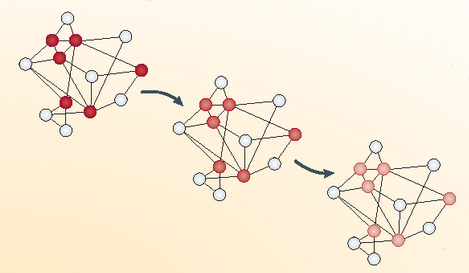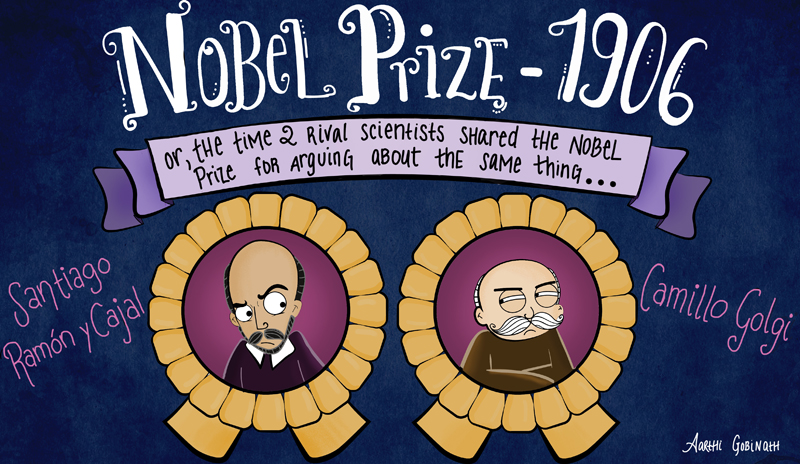Tuesday, 22 October 2019
Why forgetting can save your life

When we think about human memory, it tends to be with the implicit assumption that more is always better. But more and more neurobiologists are now asserting the opposite: that forgetting makes us more efficient! This raises two important questions: 1) forgetting what? and 2) more efficient in doing what? Science blogger Tom Siegfried attempts to provide the answers in an article published in January 2019, entitled “Why forgetting may make your mind more efficient.” (more…)
Memory and the Brain | Comments Closed
Friday, 4 October 2019
Karl Friston: toward a grand unifying theory of life and cognition?
 This week I’d like to tell you about a fascinating piece of reporting by journalist Shaun Raviv, in the November 13, 2018 issue of Wired magazine. It’s about one of the most important figures in the cognitive sciences today: Karl Friston. I call Raviv’s piece reporting rather than an interview because he spent more than a week in London in the summer of 2018 researching it. Its title, “The Genius Neuroscientist Who Might Hold the Key to True AI”, might seem sensationalistic, since we all know what a buzzword artificial intelligence has become. But in fact, this title understates the case. As Raviv puts it, “Friston believes he has identified nothing less than the organizing principle of all life, and all intelligence as well.”
This week I’d like to tell you about a fascinating piece of reporting by journalist Shaun Raviv, in the November 13, 2018 issue of Wired magazine. It’s about one of the most important figures in the cognitive sciences today: Karl Friston. I call Raviv’s piece reporting rather than an interview because he spent more than a week in London in the summer of 2018 researching it. Its title, “The Genius Neuroscientist Who Might Hold the Key to True AI”, might seem sensationalistic, since we all know what a buzzword artificial intelligence has become. But in fact, this title understates the case. As Raviv puts it, “Friston believes he has identified nothing less than the organizing principle of all life, and all intelligence as well.”
What Friston offers is the kind of (very) grand unifying theory that doesn’t come along in science every day. But who is this guy with such big ideas? (more…)
From the Simple to the Complex | Comments Closed
Wednesday, 28 August 2019
Shifting Paradigms in the History of Neuroscience
 The development of a scientific discipline over time is often far from a linear sequence of events that build on each other logically. That can happen, of course. But philosophers of science, such as Thomas Kuhn, have clearly shown that “normal science” often operates under a dominant paradigm for an extended period, until enough “abnormal data” (i.e., data that contradict that paradigm) accumulate to lead to a scientific revolution, accompanied by a radical shift in that paradigm.
The development of a scientific discipline over time is often far from a linear sequence of events that build on each other logically. That can happen, of course. But philosophers of science, such as Thomas Kuhn, have clearly shown that “normal science” often operates under a dominant paradigm for an extended period, until enough “abnormal data” (i.e., data that contradict that paradigm) accumulate to lead to a scientific revolution, accompanied by a radical shift in that paradigm.
One of these revolutions, famous in history and entertainingly presented in the Neurohistory Cartoons Project, broke out when the 1906 Nobel Prize in Physiology/Medicine was awarded jointly to Italian scientist Camillo Golgi and Spanish scientist Santiago Ramón y Cajal. (more…)
From the Simple to the Complex | Comments Closed
Wednesday, 7 August 2019
Study on Brain’s Reaction to Social Isolation Argues Against Its Use in Prisons

Why do people who have been intentionally isolated from their peers (for example, prison inmates who have been placed in “disciplinary isolation”) find this experience so completely dehumanizing? We all know that human beings have great needs for social contact. But are these needs so great that simply being deprived of such contact upsets our entire mental equilibrium? If a study published in the February 2016 issue of the journal Cell is to be believed, it would appear that social isolation does in fact lead to genuine impairments in brain function. (more…)
Mental Disorders | Comments Closed
Monday, 8 July 2019
Power Weakens Cognitive Abilities To Bond with Other People

This week I’d like to tell you about an article that appeared in The Atlantic in August 2017 and that I’d never gotten around to telling you about before. It was called “Power Causes Brain Damage”, with the subtitle “How leaders lose mental capacities—most notably for reading other people—that were essential to their rise”. The article cites UC Berkeley psychologist Dacher Keltner, whose past work has included studies showing that rich people are more inconsiderate in various situations, such as taking turns with their vehicles at 4-way stops. Apparently, personal wealth provides a feeling of unlimited power that causes rich people to become detached from reality. This finding raises serious questions about the state of mind of the many wealthy people who are elected to represent the people as a whole. (more…)
Uncategorized | Comments Closed








